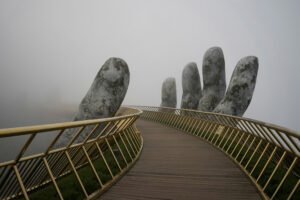October 21, 2014; BostInno
As NPQ has reported before, many people are experimenting with new forms of enterprise, ranging from the capitalization process to the way the enterprise is governed and where its proceeds go.
This new project is an example of that.
According to co-founder Raul Fernandez, “Boston has always been a great place of great universities and culturally historic neighborhoods, but what’s been missing is a place that connects our bright young college students and brilliant faculty with communities in need.” We are not so sure about that—an NPQ staff person suggests visiting “The Pit” in Harvard Square, or any one of a number of other public places where the brilliant from both sides of the social continuum hang out together, but Fernandez and Austin Ashe plan to open a coffee shop with a different kind of organizational idea.
Sign up for our free newsletters
Subscribe to NPQ's newsletters to have our top stories delivered directly to your inbox.
By signing up, you agree to our privacy policy and terms of use, and to receive messages from NPQ and our partners.
Fernandez is Boston University’s associate director of student activities and Ashe is an adjunct professor at Bunker Hill Community College. Together, the two plan to open the Grind, where 100 percent of profits will go towards supporting other social enterprises as chosen by the organization’s community members. “Our ultimate goal is to work with communities to establish their own coffee shops, laundromats or bodegas with the profits going into education, workforce development and other initiatives that matter to people in those communities,” Fernandez said. In this way, the Grind would serve as a catalyst for other social businesses to invest in community growth and development—a concept that the two hope will spread throughout the country.
In addition to investing profits in other social businesses, the founders seek to make the Grind a place where the community can come to connect and collaborate with one another as a sort of informal community center. Artwork from students will be hung on the walls, a stage will allow artists to perform, and bookshelves will be filled for patrons to browse. The coffee shop will also participate in the “suspended coffee” movement, wherein a cup of coffee can be anonymously purchased in advance and given to another patron.
Looking to have the Grind up and running by spring of 2015, Fernandez and Ashe have turned to the crowdfunding website Kickstarter to secure start-up funds necessary for the project—a total cost of over $150,000. But the first fundraising benchmark of $30,000 that the pair hopes to achieve will enable them to secure a location and provide proof of concept to potential investors.
Should they raise the necessary funds to sustain the Grind through the first several years of operation, Fernandez and Ashe have the potential to create a source of sustainability for the establishment and growth of future social enterprises. The Grind would become a do-it-yourself version of a community foundation, with Grind community members serving as a board and social enterprises representing the traditional charitable organization recipients.—Michele Bittner











